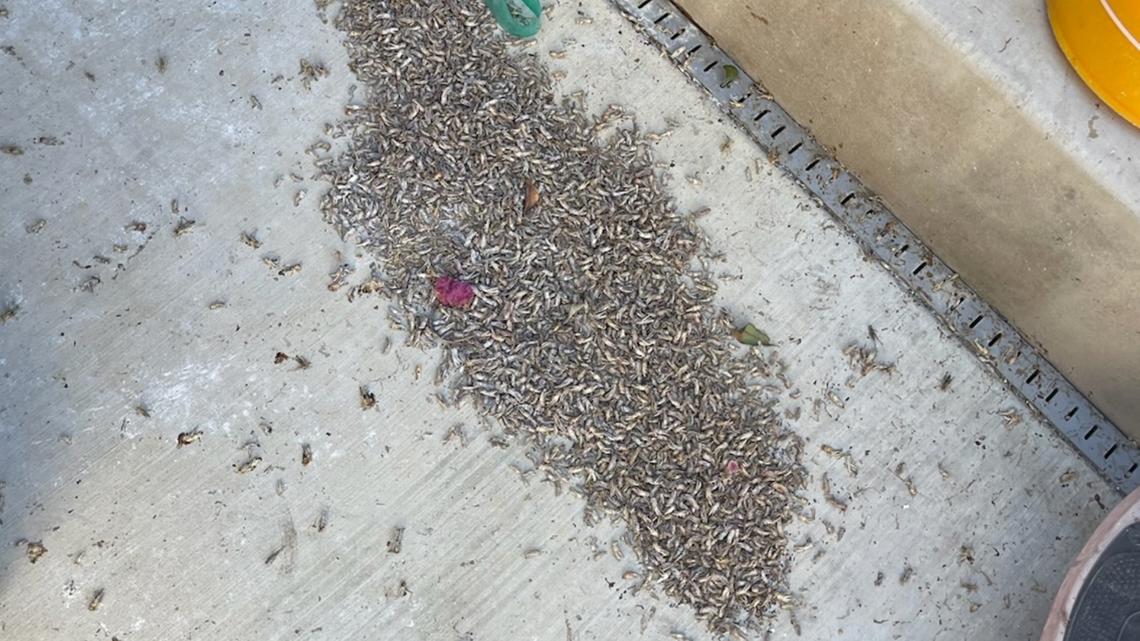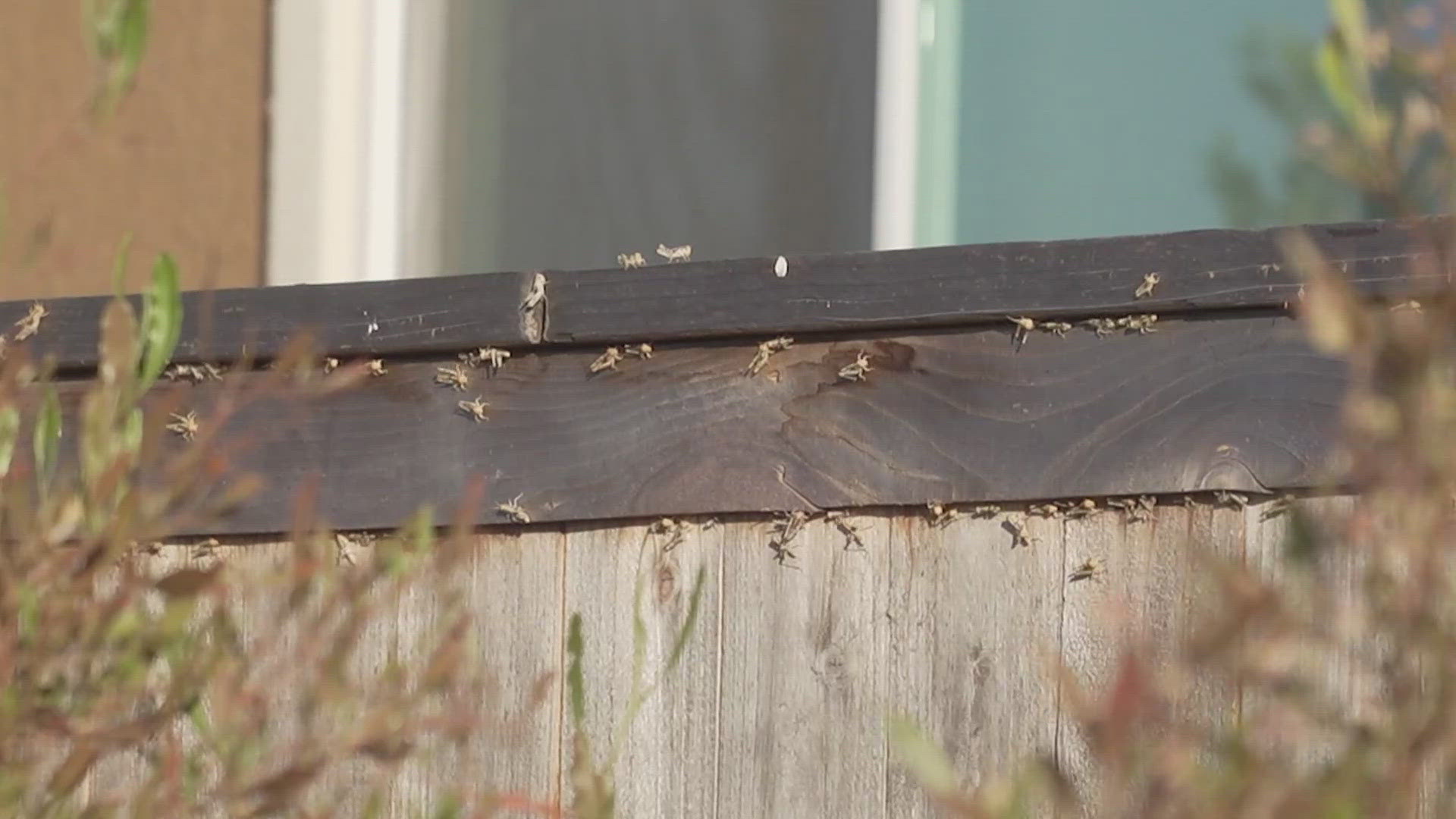ROSEVILLE, Calif. — Locusts are taking over some neighborhoods in Roseville — don’t worry though, it’s not the end of days. Experts say they’re completely harmless to humans.
These locusts, also known simply as grasshoppers, are coming out of fields and swarming in nearby neighborhoods in what Lynn Kimsey, Distinguished Professor of Entomology and Director of the Bohart Museum of Entomology, says is created under perfect conditions.
“It's odd, but it's not rare,” she said. “I guess this year, at least for here, (conditions) were perfect for this. But it takes a lot of very special conditions, so it's not something people have to worry about.”
Kimsey says something like this can happen every five to 10 years and oftentimes lasts a week or two. She says the difference between locusts and grasshoppers are a "numbers game." When grasshoppers are in large quantities, they're called locusts.
According to the University of California Agriculture and Natural Resources program, grasshoppers lay their eggs in soil of “undisturbed areas” in the fall and hatch in the spring. Adult grasshoppers can live two to three months.
Kimsey says there’s no real harm for those currently dealing with the influx of insects, especially since the majority of them are juveniles.
“They can (bite), but their jaws are kind of like cutting shears, they're designed for plant material. So they will give you a healthy pinch, but little ones like that? No, not even remotely,” she said. “They're absolutely harmless, except if you don’t like them.”
While young, these bugs don’t make sound and shouldn’t really bother you all that much. Your garden, though? That'll be bothered. Kimsey says the bugs can “pretty much strip a place” of vegetation, eat some other insects and even dog food if resources are scarce enough.


So, how can you get rid of these grasshoppers?
Kimsey says your best bet is waiting for them to move on or let the ecosystem run its course. If you want immediate results, she says you could probably kill them or pay for someone to remove them, but those options can be costly or cause more issues as the bugs stink when decomposing if not cleaned up.
“They'll either run out of food or be eaten by other things, so I really don't think it's something that people should worry about,” she said.
For those not squeamish, once the population dies down a bit, Kimsey says you can just “pick them up and throw them away. They really don't fight back.”
Anyone with pet turtles or reptiles can gather grasshoppers as treats for the animals (or yourself), but only if you’re okay with what she calls “freezer pets.” You can freeze grasshoppers in large quantities and use them as you please.
Experts suggest planning ahead when protecting your garden from insects. Here are some tips on how to protect your garden and plant life from these critters before they pass through your area:
- Grow a Green Border - leave long grass around your garden so the grasshoppers feed on that instead of your crops
- Natural Predators - attract more birds to your yard and garden
- Cover plants - mesh, cloth and metal screens can be installed over your garden to keep bugs out. Note if grasshoppers are hungry enough, they may eat through mesh or cloth
- Use insecticides - This option can be costly and time consuming. Read labels when spraying anything onto your garden



















